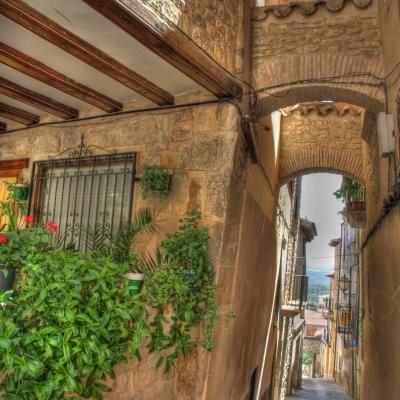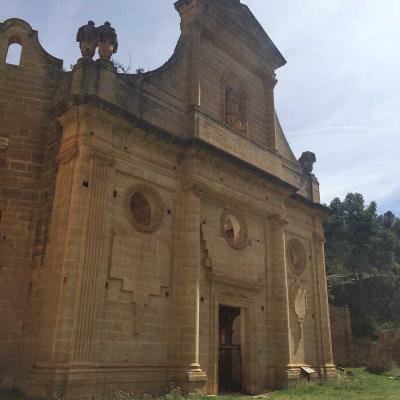City heritage: La Fresneda
The town of La Fresneda, got declared Historic-Artistic Monument in 1983, hosts a good mix of typical folk architecture and the noble masonry construction.
From Mayor Street, flanked by it's characteristical porches, starts the neighborhood of the judería, with small, narrow and dark streets. Its steep streets allow you to discover beautiful arches, as giving access to the arcaded Plaza Mayor, called Arco de Xifré (s. XVI), besides many "casalicios" of centuries XVI y XVIII.
In the Plaza Mayor highlights the beauty and magnificence of the City Council, (s. XVI), with Gothic-Renaissance style, which is reproduced in the Poble Espanyol de Barcelona.
But other outstanding civil buildings also distinguish from the sixteenth century, as the Palace of the Marqués de Tosos, which is currently collapsed,and the Palace of the Encomienda, in perfect conditions and actually used as a residence.
Halfway between the Hotel El Convent and Calle Mayor, very close to the Palace of the Encomienda, is the Church of Our Lady of Pilar (s. XVII), Baroque style with a beautiful cover.
At the top of the village worth striving for the Santa María la Mayor (s. XVII), the calatravo Castle and the ruins of the great Ermita de Santa Bárbara.
The surprise of the visit can be found 6 km from La Fresneda by a very well aconditionated dirt street, where the ruins of the Convent of Our Lady of Grace are (s. XVI), greets visitors with a large and unexpected architectural environment pleasantly undiscovered.









































